Latest News
China, Russia to discuss on IS presence in Afghanistan at Eurasian security summit
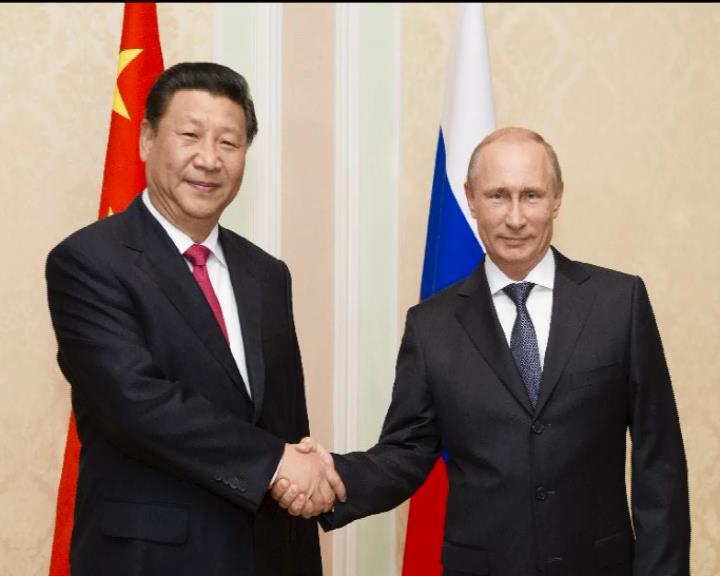
Russian President Vladimir Putin and Chinese President Xi Jinping and other leaders will discuss the threat the Islamic State group poses in Afghanistan at a Eurasian security summit in Russia this week.
Xi travels to the Russian city of Ufa for a summit on Thursday and Friday of leaders of the Shanghai Cooperation Organisation (SCO), which groups China, Russia, Kazakhstan, Kyrgyzstan, Tajikistan and Uzbekistan, according to (AFP).
(AFP) reported that it will be preceded by a meeting of leaders of the BRICS group of emerging economies — Brazil, Russia, India, China and South Africa.
“Due to the spillover effect of the Islamic State terrorist activities, Afghanistan now faces a grim security situation,” Chinese vice foreign minister Cheng Guoping told reporters.
SCO leaders “will certainly have in-depth discussions on the Afghan issue”, he added. “And they will talk further about how to respond to the security situation there.”
China is seeking business interests in Afghanistan and is sensitive to any spillover of Islamic-inspired extremism from the country, which has a short border with its mostly Muslim western region of Xinjiang.
Afghanistan’s militant Taliban are seeking to halt defections to IS after some insurgents adopted its flag to rebrand themselves as a more lethal force as NATO troops depart the country.
Last month the Taliban warned the leader of IS group against waging a parallel insurgency in Afghanistan, after reported clashes between militants loyal to the two groups.
Afghanistan has “observer” status in the SCO, along with India, Iran, Mongolia and Pakistan, according to the group’s website.
The summit will begin procedures for India and Pakistan to join the group as full members after their candidatures were approved last year, Cheng said.
The acceptance of the nuclear-armed rivals — which have fought three wars since independence from Britain in 1947 and jockey for influence in Afghanistan — would mark the SCO’s first expansion since its inception in 2001.
Cheng shrugged off any concerns over their tense relations, saying membership “will not only help the organisation become better but will also play a productive role in promoting friendly relations between the two countries”.
He also said that China remained on guard against the East Turkestan Islamic Movement (ETIM) it says foments unrest in Xinjiang among the region’s ethnic Uighurs, though many analysts outside China have questioned whether any large scale organisation of the kind exists.
“It has participated in some terrorist activities of the IS,” he said of ETIM. “China is concerned about that and we will also maintain security cooperation with relevant countries.”
Besides the group summits, Xi will hold bilateral talks with Putin in their eighth such meeting since Xi became president in 2013. Xi visited Russia in May to witness a vast military parade at Red Square to commemorate the defeat of Nazi Germany in 1945.
“The Chinese and Russian leaders have established a very good working relationship and personal friendship,” Cheng said, adding: “As permanent members of the (UN) Security Council a sound relationship between these two countries plays an important role in promoting world peace”.
He said they will discuss bilateral relations, including economic cooperation and “specific cooperation projects”, without elaborating.
Russia — which invaded Afghanistan in 1979 and occupied it for a decade — has strengthened ties and trade with China since coming under Western sanctions for its actions in Ukraine.
Russia became China’s top crude supplier in May for the first time in a decade, Bloomberg News reported last month, as Moscow seeks new markets for its oil.

Latest News
Central Asian envoys meet in Astana for talks on Afghanistan

An extraordinary meeting of the Regional Contact Group of Special Representatives of Central Asian countries on Afghanistan was held at Kazakhstan’s Ministry of Foreign Affairs.
The gathering brought together representatives from Kazakhstan, Kyrgyzstan, Tajikistan, and Uzbekistan to discuss the situation in Afghanistan and explore avenues for practical cooperation, Kazakh foreign ministry said in a statement.
Yerkin Tukumov, Special Representative of the President of Kazakhstan for Afghanistan, emphasized the country’s commitment to constructive dialogue and identifying practical solutions to address pressing issues related to engagement with Kabul.
Discussions focused on enhancing trade and economic ties, expanding transit and transport corridors through Afghanistan, and addressing regional security concerns. Participants stressed the need for coordinated efforts among Central Asian states to ensure stability and promote sustainable development in Afghanistan.
The meeting concluded with a reaffirmation of the participants’ readiness to continue regular consultations and maintain working-level contacts under the framework of the Regional Contact Group.
Latest News
Afghanistan’s defense ministry unveils new military uniforms for armed forces
Speaking at the ceremony, Qari Fasihuddin said the uniform is designed to reinforce order, discipline, and a shared sense of purpose within the ranks.
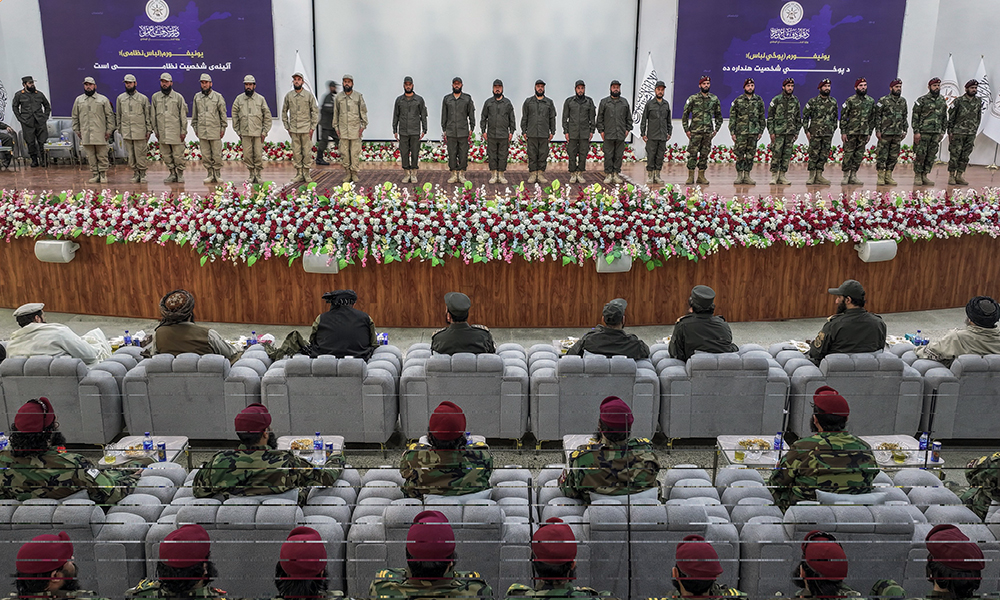
The Ministry of National Defense of the Islamic Emirate of Afghanistan officially unveiled a new uniform for the country’s armed forces on Monday.
The new attire, selected for commandos, border police, and the Afghan National Army, was introduced during a special ceremony held at the Ministry’s headquarters.
The event was attended by the Chief of Staff of the Armed Forces, Qari Mohammad Fasihuddin Fitrat, senior ministry officials, and commanders of central units. Officials emphasized that the new uniform represents discipline, cohesion, and a unified identity among all personnel.
Speaking at the ceremony, Qari Fasihuddin said the uniform is designed to reinforce order, discipline, and a shared sense of purpose within the ranks.
“This new uniform symbolizes unity and solidarity of our armed forces,” he said. “All those joining the ranks must see defending the country as their primary responsibility and commitment.”
Meanwhile, Enayatullah “Khowarzmi,” Head of Strategic Information and Publications at the Ministry, highlighted the importance of professionalism and ethical conduct.
He said; “Every soldier must have strong willpower, high moral standards, and strict adherence to military principles. Forces must remain resolute against enemies while serving the people with integrity and responsibility.”
According to ministry officials, the introduction of the new uniform is part of ongoing efforts to strengthen cohesion, discipline, and a unified identity among Afghanistan’s defense forces.
Latest News
Tashkent and Kabul discuss strengthening strategic partnership
The discussions come amid continued efforts by neighboring countries to maintain pragmatic engagement with Kabul despite ongoing political and economic challenges.
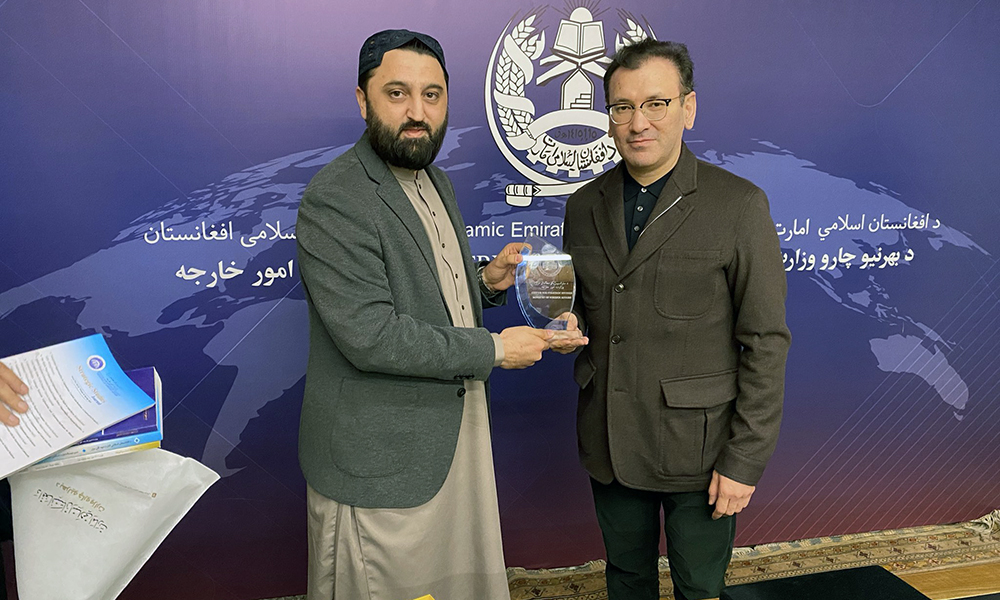
A senior Uzbek official has held talks in Kabul aimed at deepening political, economic and regional cooperation between Uzbekistan and Afghanistan, as both sides seek to translate long-term strategic goals into practical outcomes.
Javlon Vakhabov, Deputy Adviser to the President of Uzbekistan, met with Abdulhai Qanet, Head of the Strategic Studies Center at Afghanistan’s Ministry of Foreign Affairs, to discuss ways to enhance cooperation and advance joint agendas under the Uzbekistan–Afghanistan partnership.
In a post on X, Vakhabov said the two sides also explored initiatives to raise public awareness of developments in both countries and across the wider region, highlighting the importance of communication and public engagement alongside diplomatic efforts.
Uzbekistan has in recent years positioned itself as an active regional partner on Afghanistan, advocating dialogue, economic cooperation, and connectivity as key tools for promoting stability. Tashkent has supported regional infrastructure and trade initiatives aimed at linking Central and South Asia, while stressing that economic engagement can contribute to long-term security.
Vakhabov added that both sides are keen to turn long-term strategic objectives into concrete initiatives, with a focus on strengthening regional stability, collaboration, and shared interests.
The discussions come amid continued efforts by neighboring countries to maintain pragmatic engagement with Kabul despite ongoing political and economic challenges.
-

 Sport5 days ago
Sport5 days agoAFC U17 Men’s Asian Cup Saudi Arabia 2026 Draw sets stage for continental showdown
-

 World5 days ago
World5 days agoPressure rises on Dubai port giant DP World over chief’s alleged Epstein ties
-
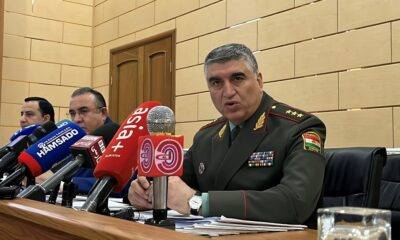
 Latest News2 days ago
Latest News2 days agoTajikistan: Recent attacks from Afghanistan aimed at damaging our relations with China
-

 Sport5 days ago
Sport5 days agoWinter Olympics 2026: Wednesday brings records, first-ever golds and thrilling action
-
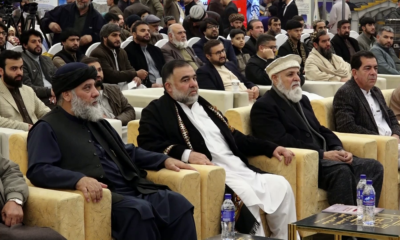
 Latest News5 days ago
Latest News5 days agoAfghanistan moving toward development and industrialization every day: Azizi
-

 Latest News3 days ago
Latest News3 days agoUN warns mass return of Afghans from Pakistan and Iran is pushing Afghanistan to the brink
-
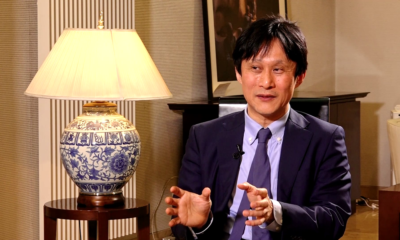
 Latest News2 days ago
Latest News2 days agoJapan maintains direct contacts with IEA officials through Kabul Embassy
-
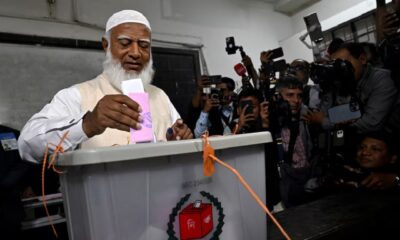
 Regional5 days ago
Regional5 days agoPolls close, counting begins in Bangladesh election after high turnout

![POTINE _06_07_2015_DARI_SOT.avi_snapshot_00.34_[2015.07.06_16.41.59]](https://ariananews.af/wp-content/uploads/2015/07/POTINE-_06_07_2015_DARI_SOT.avi_snapshot_00.34_2015.07.06_16.41.59-300x240.jpg)













